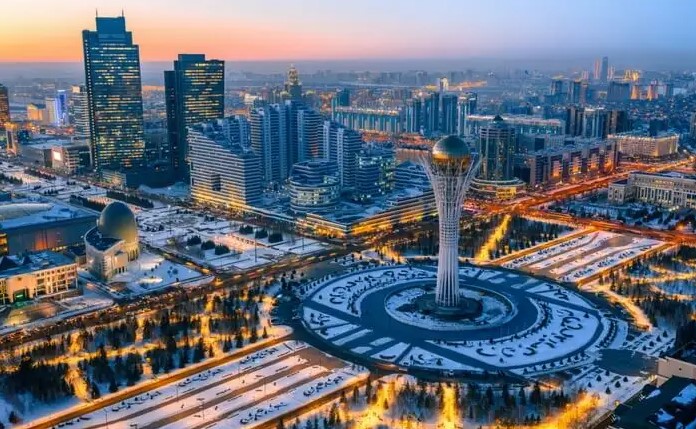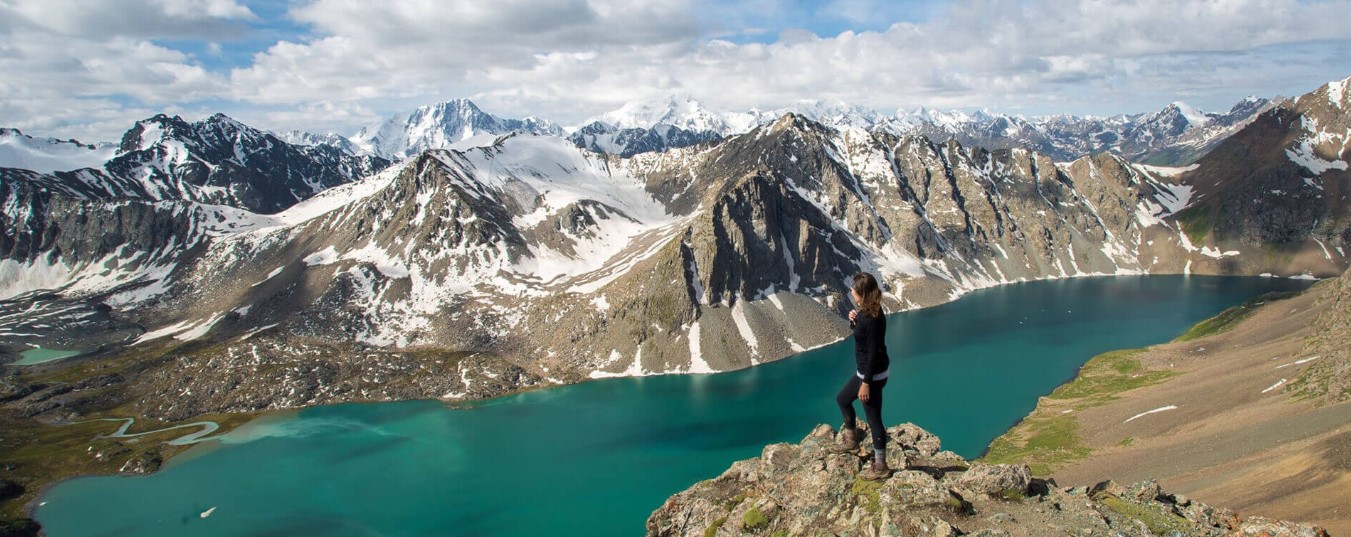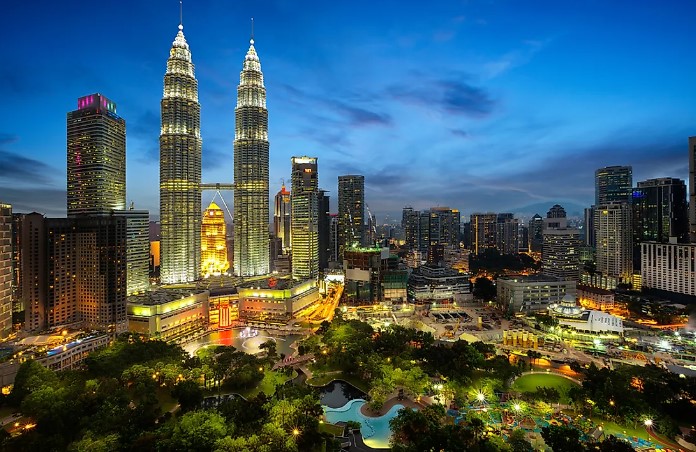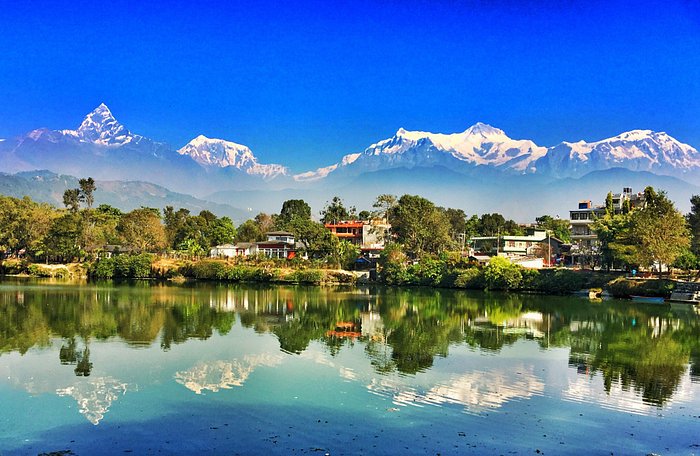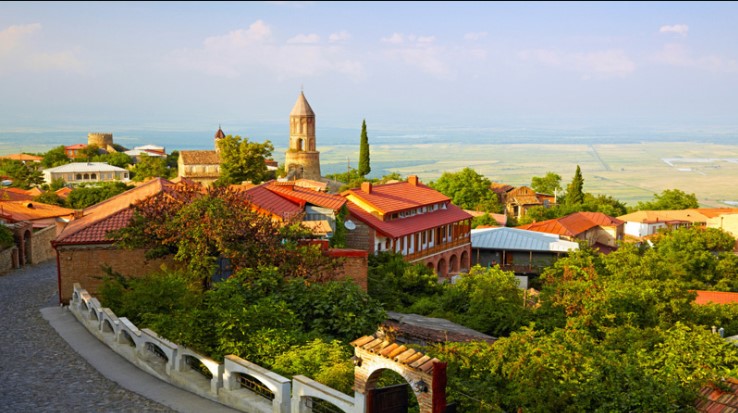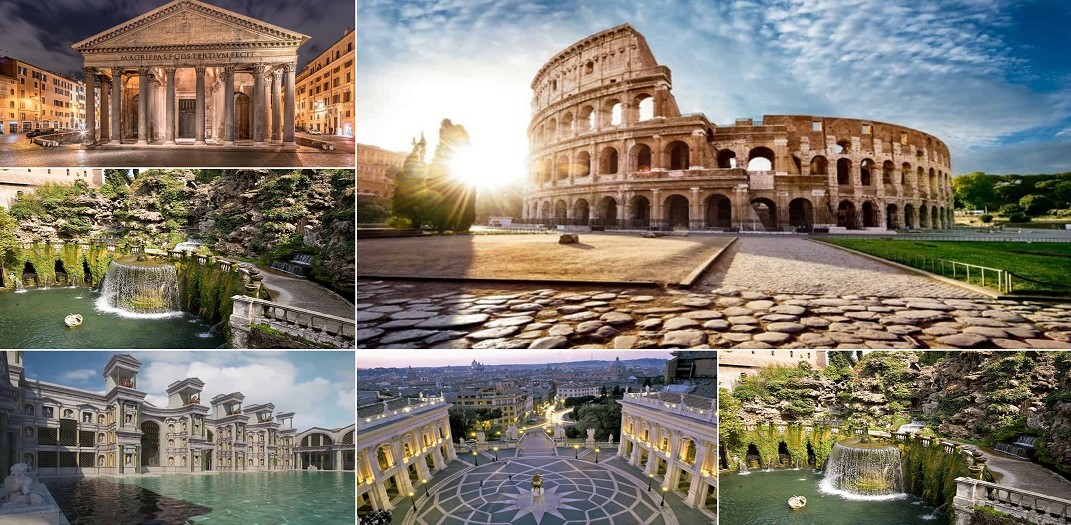Best Places to Visit in Iraq
Tourist Places & Attractions
Discover the top 25 best places to visit in Iraq! This comprehensive guide covers the most enchanting tourist attractions, from historical sites to natural wonders. Experience the beauty and diversity of Iraq with our expert recommendations.
Iraq, a land of rich history and cultural heritage, is an enchanting destination for travelers seeking unique experiences. From ancient ruins to bustling bazaars, this country has something to offer every adventurer.
In this article, we will explore the 25 best places to visit in Iraq, showcasing its diverse landscapes and incredible attractions. So, pack your bags and get ready for an unforgettable journey through this Middle Eastern gem.
1. Baghdad: The Historic Capital
Baghdad, the capital of Iraq, holds a mesmerizing blend of ancient history and modern charm. Explore the iconic Al-Mustansiriya School, a renowned medieval learning center, and visit the Baghdad Museum, housing an impressive collection of archaeological treasures. Don't miss the bustling streets of Al-Rasheed Street, filled with vibrant markets and delicious street food.
2. Erbil: The Oldest Continuously Inhabited City
Erbil, one of the oldest cities in the world, boasts an ancient citadel that dates back over 8,000 years. Wander through its narrow alleys, soak in the stunning views of the city, and visit the Kurdish Textile Museum to learn about the region's traditional weaving techniques.
3. Basra: The Venice of the East
Basra, known as the "Venice of the East," is a city of winding canals and historic architecture. Explore the Shatt Al-Arab waterfront, where the Tigris and Euphrates rivers meet, and visit the Basra Museum to see its remarkable collection of artifacts.
4. Babylon: A Journey into Antiquity
Step back in time at Babylon, an ancient city steeped in history and myth. Marvel at the Ishtar Gate, an exquisite archaeological wonder, and wander through the ruins of the Hanging Gardens, one of the Seven Wonders of the Ancient World.
5. Mosul: The City of Cultures
Despite the challenges it has faced, Mosul remains a city of cultural significance. Admire the stunning architecture of the Al-Nouri Mosque and Al-Hadba Minaret, and explore the Mosul Museum, home to an impressive collection of Assyrian artifacts.
6. Samarra: An Architectural Marvel
Samarra is a treasure trove of Islamic architecture and historical sites. Visit the Great Mosque of Samarra, with its iconic spiral minaret, and explore the remnants of the Abbasid Caliphate, including the Malwiya Tower.
7. Najaf: The Holy City
Najaf is a significant pilgrimage site for Shia Muslims. Pay your respects at the Imam Ali Shrine, a grand and spiritually uplifting place, and stroll through the bustling bazaars of the old city.
8. Karbala: Commemorating Martyrdom
Karbala holds great religious importance for Shia Muslims, commemorating the martyrdom of Imam Hussein. Experience the passionate rituals during the Arbaeen pilgrimage and visit the holy shrines of Imam Hussein and Abbas ibn Ali.
9. Ctesiphon: Ancient Marvels
Ctesiphon, once the capital of the Parthian and Sassanian empires, boasts the remarkable Taq Kasra Arch. Discover the historical significance of this ancient city and its role in shaping the region's history.
10. Kirkuk: The City of Contrasts
Kirkuk offers a unique blend of cultures, with its diverse population and historical landmarks. Explore the Kirkuk Citadel, visit the Kirkuk Museum, and take in the scenic views from the Citadel's ancient walls.
11. Dohuk: Nature's Playground
Dohuk is a haven for nature enthusiasts. Explore the beautiful landscapes of the Azmar Mountains, take a boat trip on Lake Duhok, and visit the ancient Lalish Temple, a sacred site for the Yazidi community.
12. Sulaymaniyah: Art and Culture Hub
Sulaymaniyah is a thriving cultural center with a rich artistic heritage. Explore the Sulaymaniyah City Museum, home to an impressive collection of Kurdish art and historical artifacts.
13. Diwaniyah: A City of Poetry
Diwaniyah is a city known for its poetic traditions. Immerse yourself in the local culture by attending poetry gatherings and visit the Al-Qushla Mosque, an architectural marvel.
14. An Najaf: Tranquility and Spirituality
An Najaf is a serene city with a strong spiritual presence. Visit the Wadi Al-Salaam cemetery, one of the largest in the world, and take a peaceful stroll along the Euphrates River.
15. Tikrit: Birthplace of Saddam Hussein
Tikrit is historically significant as the birthplace of Saddam Hussein. Explore the Al-Arbaeen Palace, the former presidential residence, and learn about the city's rich history.
16. Hit: Ancient Mesopotamian City
Hit, an ancient Mesopotamian city, is known for its archaeological sites. Visit the Hit Archaeological Museum and the impressive city gates, which date back thousands of years.
17. Ramadi: A Cultural Heritage
Ramadi, despite its troubled past, is a city with a deep cultural heritage. Discover the Al-Anbar Museum, showcasing ancient artifacts, and experience the city's unique blend of traditions.
18. Fallujah: A City Rebuilding
Fallujah, once ravaged by conflict, is now in the process of rebuilding. Visit the Saad Bin Abi Waqqas Mosque and the Ar-Razzazah Lake, offering a peaceful respite.
19. Zakho: Gateway to Turkey
Zakho serves as a gateway to Turkey and is known for its historical sites. Explore the ancient town of Lalish and the Zakho Bridge, offering picturesque views.
20. Arbil Governorate: A Historical Journey
Arbil Governorate is a region rich in history and natural beauty. Visit the Qaysari Bazaar, one of Iraq's oldest markets, and explore the Gali Ali Bag waterfall for a refreshing experience.
21. Makhmour: The Red Village
Makhmour, known as the "Red Village," offers a unique experience with its red-bricked houses. Explore the vibrant streets and visit the Makhmour Gorge for a scenic adventure.
22. Al-Qadisiyah: Reliving the Past
Al-Qadisiyah is a province steeped in history. Visit the ancient city of Babylon and the ancient ruins of the Battle of Al-Qadisiyah for a glimpse into the past.
23. Al Anbar Governorate: Nature's Bounty
Al Anbar Governorate is a region of natural wonders. Explore the mesmerizing Al Habbaniyah Lake and the vast Al Tharthar Desert for an unforgettable journey.
24. Nineveh Governorate: The Assyrian Heartland
Nineveh Governorate, the heartland of ancient Assyria, holds significant historical sites. Explore the ancient city of Nimrud and the stunning ruins of the ancient city of Nineveh.
25. Kirkuk Governorate: A Tapestry of Cultures
Kirkuk Governorate is a diverse region with a rich cultural tapestry. Visit the Kirkuk Citadel, the Koye River, and the Kirkuk Museum for an enriching experience.
Tips on planning your trip and Safety tips for traveling in Iraq
Are you planning a trip to Iraq? Read our comprehensive guide for 5 tips on planning your trip and 5 safety tips for traveling in Iraq. Discover the best practices, insights, and essential information to ensure a memorable and safe journey.
If you are an adventurous traveler with a penchant for exploring new destinations off the beaten path, Iraq offers a treasure trove of historical and cultural wonders. However, given its complex history and current geopolitical situation, planning a trip to Iraq requires careful consideration and preparation. In this section, we will provide you with valuable insights, first-hand experiences, and expert advice on how to plan your trip to Iraq and ensure your safety throughout your journey. So, fasten your seatbelts and get ready for an unforgettable adventure!
5 Tips How to Plan Your Trip to Iraq
1. Research Iraq's Cultural Heritage
Before embarking on your journey, dive into the rich cultural heritage of Iraq. Familiarize yourself with the country's historical landmarks, ancient cities, and renowned museums. Baghdad, the capital city, boasts the National Museum of Iraq, which houses a vast collection of Mesopotamian artifacts. Don't miss the ancient city of Babylon and the Ziggurat of Ur. Understanding the history and culture will enrich your experience and create lasting memories.
2. Obtain a Valid Visa and Travel Insurance
Securing the necessary travel documentation is paramount when planning your trip to Iraq. Ensure you have a valid visa before you arrive in the country. Additionally, acquiring comprehensive travel insurance that covers medical emergencies, trip cancellations, and personal belongings is a must. Research reputable insurance providers and choose a plan that aligns with your travel needs and preferences.
3. Choose the Right Time to Visit
Iraq experiences extreme temperatures, with scorching summers and chilly winters. To make the most of your journey, plan your visit during the shoulder seasons of spring (March to May) and autumn (September to November). During these periods, the weather is relatively mild, allowing you to explore comfortably and enjoy various outdoor activities.
4. Respect Local Customs and Etiquette
As a foreign visitor, showing respect for local customs and etiquette is crucial. Iraq is a predominantly Islamic country, and conservative dress is appreciated, especially in religious sites and rural areas. Learning a few basic Arabic phrases will also be well-received by locals. Embrace the warmth and hospitality of the Iraqi people, and your trip will be even more rewarding.
5. Plan Your Itinerary Wisely
Iraq offers an array of attractions, and planning your itinerary wisely will ensure you get the most out of your trip. Consider exploring the bustling markets of Basra, the serene marshlands of Chibayish, and the stunning architecture of Samarra. Balance your days between sightseeing and leisure, giving yourself ample time to immerse in the local culture and savor the culinary delights.
5 Safety Tips for Traveling in Iraq
1. Stay Updated on Security Situation
Before and during your trip, keep a close eye on the security situation in Iraq. Check for travel advisories issued by your government and reputable sources. Register with your embassy upon arrival and stay informed about any potential risks or hazards in the areas you plan to visit.
2. Engage a Reputable Local Guide
Exploring Iraq with a knowledgeable local guide can significantly enhance your safety and overall experience. They can navigate you through the intricacies of the region, offer insights into cultural norms, and steer you away from potential danger zones. Look for licensed tour operators with positive reviews from previous travelers.
3. Travel in Groups
Traveling in a group, especially in unfamiliar territories, provides an added layer of security. Joining a group tour or traveling with like-minded adventurers ensures that you have support and assistance in case of any unforeseen circumstances. Remember, there is strength in numbers.
4. Be Mindful of Your Belongings
Petty theft can occur in crowded areas or tourist hotspots. To safeguard your belongings, invest in a secure and anti-theft backpack. Keep important documents, like your passport and travel insurance, in a concealed pouch under your clothing. Avoid displaying large sums of cash or valuable items.
5. Respect Restricted Areas
Iraq has certain restricted areas due to ongoing conflicts or archaeological excavations. Always adhere to these restrictions and respect the boundaries set by local authorities. Trespassing into off-limits areas could lead to serious consequences and jeopardize your safety.
FAQs:
Is Iraq safe for tourists?
Iraq has seen significant improvements in security over recent years, making it safer for tourists. However, it is essential to stay informed about the latest travel advisories and exercise caution when visiting certain areas.
What is the best time to visit Iraq?
The best time to visit Iraq is during the spring and autumn months when the weather is mild and pleasant. Avoid visiting during the scorching summers or chilly winters.
Are there any visa requirements for visiting Iraq?
Yes, most visitors to Iraq will require a visa. It is best to check the specific visa requirements based on your nationality before planning your trip.
Can I visit historical sites in Iraq?
Absolutely! Iraq is home to numerous historical sites and ancient ruins, each with its unique significance. However, it is advisable to follow local guidelines and travel safely.
What is the currency used in Iraq?
The currency used in Iraq is the Iraqi Dinar (IQD). It is recommended to exchange money at authorized exchange offices or banks.
What are the main languages spoken in Iraq?
Arabic and Kurdish are the two primary languages spoken in Iraq. English is also understood in some tourist areas and establishments.
Note: Iraq offers an enchanting blend of history, culture, and natural beauty for intrepid travelers. From ancient archaeological wonders to vibrant modern cities, this country has something to captivate every explorer.
Whether you seek cultural immersion, spiritual experiences, or natural adventures, Iraq will leave you with unforgettable memories. So, pack your bags and embark on a journey to discover the 25 best places to visit in Iraq, and let this Middle Eastern gem reveal its magic to you.















